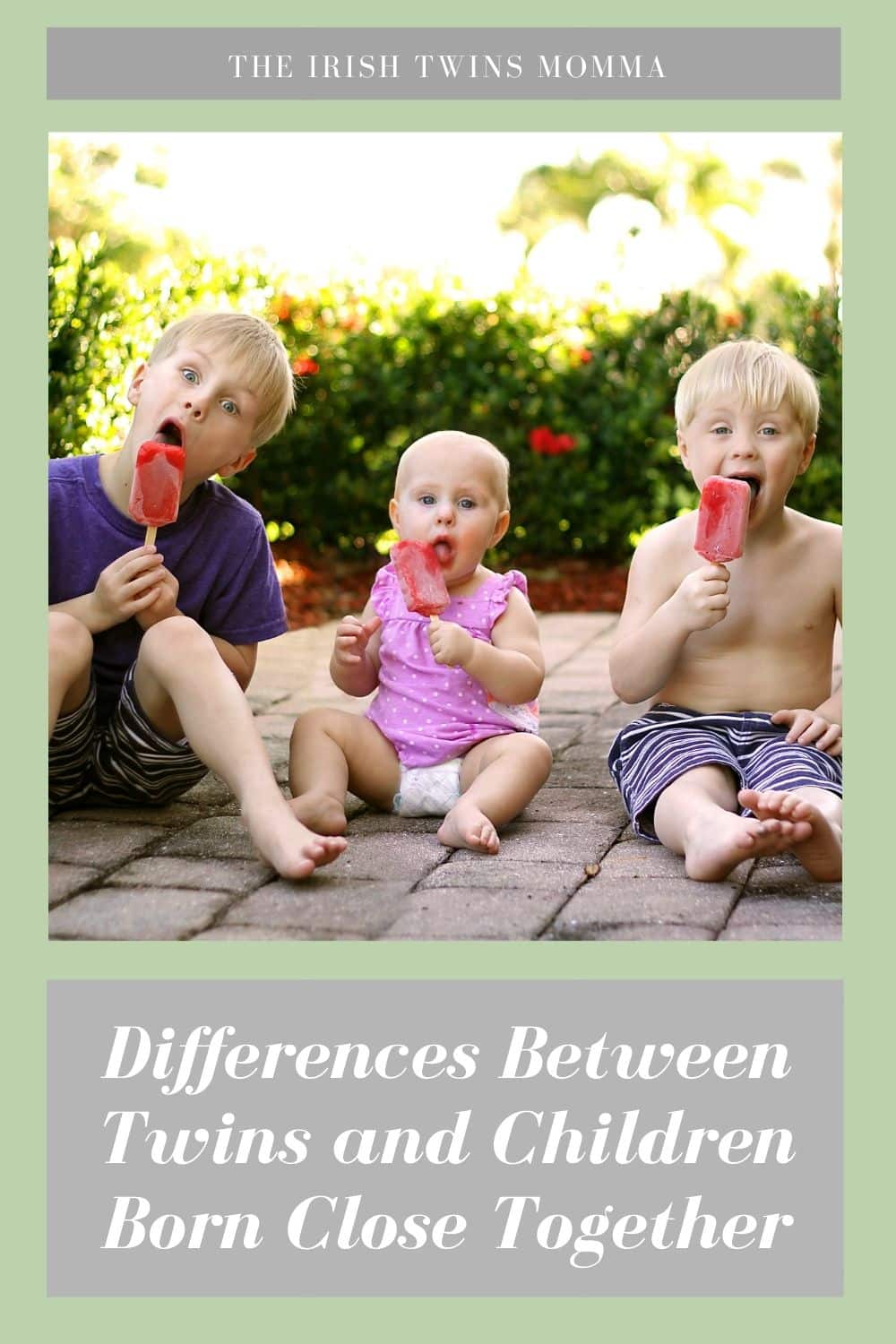This post contains affiliate links. If you click and buy, I may make a commission, at no cost to you. See my disclosure policy for more information.
If you’re the mother of twins or Irish twins, you know when you’re out at the grocery store, mall, or post office. Navigating the aisles with your twins in their humungous double stroller, you’re desperately trying to accomplish some important errands in the narrow “golden hour” time period between nap time, feedings, and meltdowns. And you’re approached by a person who wants to interrogate you. “Are they twins? Are they identical? Who’s older?” The usual array of questions people ask about twins.
The conversation usually concludes with one of two anecdotes. Either they will attempt to connect with you by sharing that their family has twins in it. Or, they will make a statement that will really set your teeth on edge. Want to see a twin mom’s blood boil? Watch her reaction when a stranger makes the claim that having two children close in age is “just like having twins.” Why does this aggravate moms of twins so severely? Because it simply isn’t true.
You might think that we are simply being defensive and that we want to maintain our martyrdom as moms with the hardest job. But you’d be mistaken. Having twins or multiples is hard. But so is motherhood in general. Having five children is hard. Having a special-needs child is hard. Having even a single child that is practically perfect is no picnic. Motherhood is full of difficult moments.
On the contrary, there are plenty of ways that having twins is actually easier than having two children of different ages. I don’t want to give away any secrets, but there is efficiency inherent in parenting multiples — doing the same thing for each kid at the same time. Having two children close in age, even Irish twins (less than a year apart), is not the same as having twins.
Differences Between Twins and Children Born Close Together
- There are no hand-me-downs. No recycling of baby equipment, clothes, toys, kid stuff. None. You need two of everything at the same time. Twins share a lot, but they each need their own car seat just to get home from the hospital. From Day One. Was that the case with your two kids born thirteen months apart?
- With singletons, you have at least nine months to adjust to each child. Sure, there could be exceptional circumstances that would create the narrowest of margins between two singletons. Getting pregnant the week after giving birth or having a preemie that’s born early. There are lots of exceptions. But still, your singletons were born months — not minutes — apart.
- A mother of twins carried two babies at once during pregnancy. It’s not the same as two pregnancies. Enough said.
- Twins have unique issues. Two children of different ages, even close in age, don’t experience the same identity issues that twins encounter. It’s not uncommon to compare children (“Oh, your brother did the same thing at your age. She looks just like her sister did when she was that age.”) But when the children are twins, the comparisons are instant and constant.
- There’s no learning curve in parenting twins. Potty training, riding a bike, learning to drive, starting college. Twins do it all at the same time. Parents guide them through it at the same time. With singletons, parents have the advantage of learning from the oldest child and applying their knowledge with the younger.
- While there are exceptions, singletons are not usually in the same grade. Most twins are. Having kids close in age but in different grades is not the same as having two children in the same grade. The school issues for twins are different. Should they be in the same class or separated? And try negotiating Open House night at school with two kids in the same grade.
So we’ve established: It’s not the same. It’s not necessarily harder or easier. It’s just different. If you’re reading this because you’re a mom of twins, feel validated. Unfortunately, people will still make the claim, and you’ll have to grin and bear it.
Sincerely,



Leave a Reply